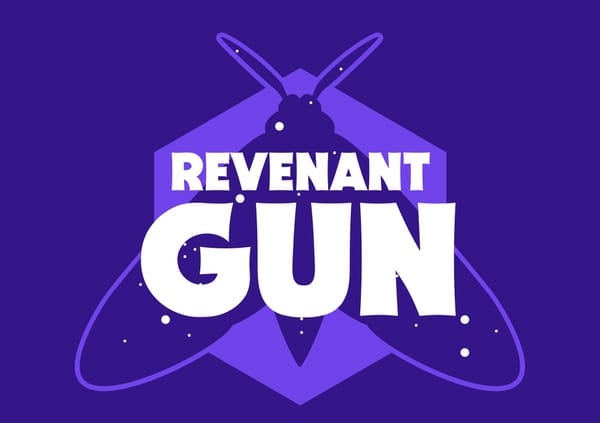Ancillary Sword by Ann Leckie
Spacefaring officers drinking tea in tearooms overlooking space station promenades.

Ancillary Sword, the second book in the Imperial Radch trilogy of space opera books and the sequel to Ann Leckie’s immensely successful Ancillary Justice, was published by Orbit Books in 2014. While this review doesn’t spoil any major plot points of Ancillary Sword (anything that is spoiled happens near the beginning of the novel), it does contain spoilers for Ancillary Justice. If you haven’t read Ancillary Justice, you can read my review of it here:

The story
Similar to how the Radchai starships have many ancillaries—human bodies that serve as the extension of the ship’s consciousness—Anaander Mianai, aka the Lord of the Radch, is one consciousness inhabiting many cloned bodies all over the Radch. With such vast distances between them, information sometimes takes a long time to reach all parts of the Lord of the Radch, which can result in different parts of Anaander Mianai having different views on policy and the future of the Radch, and different factions forming within Anaander Mianai as a whole.
Ancillary Sword picks up where Ancillary Justice left off when Breq killed one of Anaander Mianai’s bodies and in the process of doing so forced the Lord of the Radch to acknowledge a fact she has long been hiding even from herself—that there are at least two different factions of herself that are in a secret war against each other.
After sparking a civil war between the divided factions of Anaander Mianai, Breq is approached by the faction that seeks to use her as a tool against her enemy. This Anaander Mianai accepts Breq into the house of Mianai—making her new name Breq Mianai—and gives her the title of Fleet Captain. Breq is given the assignment of protecting the far Athoek Station upon which she descends with the full power of her new name and title, determined to preserve an oasis of peace amidst the empire spiralling into chaos.
But even on Athoek, with communication networks down, Breq still can’t escape the watchful gaze of the Lord of the Radch. And things are further complicated when she meets Translator Dlique, a human-looking being created by the alien Presger.
The Presger are as dangerous as they are uncanny, and the only thing preventing them from ripping the Radchai civilisation apart is the peace treaty between the humans and the Presger signed by Anaander Mianai herself. This treaty is important as by signing it, the Presger acknowledged humans as a “Significant” species—which basically means you are not allowed to hunt them for sport anymore. But this peace is precarious and can easily be threatened by anything that can be perceived as a human act of aggression against the Presger. Like, for example, if a Presger translator would suddenly and inexplicably die aboard a Radchai space station.
The review
In many ways, Ancillary Sword, the second book in the Imperial Radch trilogy, contrasts its predecessor. Compared to Ancillary Justice, the setting of Ancillary Sword is contained, taking place on one planet and its nearby space station.
The planet Athoek and its space station represent the Radch in the microcosmic sense. The annexation of Athoek took place some 600 years ago before the events of Ancillary Sword, and here we are given the opportunity to learn more about the Radch from the people who have been born into it. We get an interesting perspective into how the Radch “civilises” people by forcing them into strictly defined roles within the Radch.
We also learn that, even 600 years after a planet has been annexed, the people there can hold onto old traditions and even older grudges.
One of my favourite things about Ancillary Sword is that, being the middle part of a trilogy, it has time to breathe. While the characters are not exactly idle (oh no—Breq could never be), we get to see them enjoy the moment quite a bit more than in the previous book. Ancillary Sword actually had me convinced that I would be happy to only read about spacefaring officers conversing and drinking tea in tearooms overlooking space station promenades for the rest of my life.
A one-star review on Goodreads described it like this:
Tea. Tea. Tea. Tea. Tea. Ancillary. Tea. Tea. Tea. Tea. Tea. Ancillary. Edge in her voice. Tea. Tea. Ancillary. Ancillary. Tea. Tea. Tea. Tea. Tea. Ancillary. Tea. Tea. Tea. Tea. Tea. Ancillary. Edge in her voice. Tea. Tea. Ancillary. Ancillary. Tea. Tea. Tea. Tea. Tea. Ancillary. Tea. Tea. Tea. Tea. Tea. Ancillary. Edge in her voice. Tea. Tea. Ancillary. Ancillary. Tea. Tea. Tea. Tea. Tea. Ancillary. Tea. Tea. Tea. Tea. Tea. Ancillary. Edge in her voice. Tea. Tea. Ancillary. Ancillary. Tea. Tea. Tea. Tea. Tea. Ancillary. Tea. Tea. Tea. Tea. Tea. Ancillary. Edge in her voice. Tea. Tea. Ancillary. Ancillary. FISH SAUCE!
And yet, I was happy to simply be able to be with my favourite characters and enjoy a cup of tea with them. And this further reinforces the notion that Ann Leckie’s story is character-driven. In conjunction with many new supporting characters (Radchai and otherwise), we also get an addition to the main cast in the character of the young Lieutenant Tisarwat, who joins the crew of Fleet Captain Breq right before her departure for the Athoek system.
Tisarwat reads like a less subtle and probably less capable version of Breq, but with an altogether different trauma. She is driven, ambitious (overly so), and emotional, but most importantly, she kept me invested, as I was curious to see what she would be able to accomplish. Tisarwat is a welcome addition to the series and, even with other iconic characters such as Breq and Seivarden, she is able to stand on her own two feet.
The social justice aspect of the series also picks up, and it soon becomes clear that this is something that the rest of the series will feature prominently. As the conflict within the Radch grows, we see Breq become angrier and more aggressive in her pursuit of justice. This fight for social justice is something that has always been a part of Breq’s character, but Ancillary Sword allows it to really shine through and establish itself as one of the major themes of the Imperial Radch’s story.
Conclusion
While in many ways different from the first book, Ancillary Sword is a brilliant continuation of the story started in Ancillary Justice. Leckie gives us a more intimate look into the lives of her characters and she lets her world grow as she organically builds upon the unique concepts established in the first book.
Being the middle book in the trilogy, Ancillary Sword takes its time to set the stage for the final act of the trilogy and reinforce the themes that will be important for the series as a whole.






